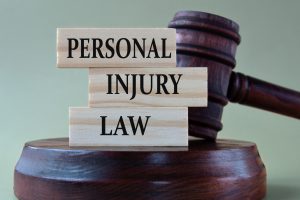Personal injury, especially a truck accident, not only takes its toll on your physical body; you also incur financial loss, and you have to deal with emotional and mental health challenges. It rules out the possibility that your emotions may get in the way of your decision-making process. However, you should not allow that to happen.
When you sustain a personal injury from an accident due to the negligence of another party, the best course of action to take is to hire a personal injury attorney. So, in the case of a truck accident, you should hire a personal injury attorney with experience in handling truck accident cases, such as Ronny Hulsey.
In this article, we will look at some questions that examine the practical aspects of your case and then help you make an informed decision about the attorney you hire.
Question 1: What is Their Payment Structure?
Most personal injury lawyers offer a type of payment structure called a contingency plan. It is when a lawyer only gets paid after they have won your case. Thus, throughout your cases, you do not pay any fee till the end.
Question 2: What is Their Area of Specialization?
There are different types of personal injury cases; not all attorneys are experienced in truck personal injury. It means the lawyer you want to hire may be better at handling other types of personal injury cases. Thus, you should find out their focus area. You have a better chance when a lawyer specializes in truck personal injury.
Question 3: How Much of a Negotiator Are They?
Negotiation with insurance companies can occur during a personal injury case. Also, some lawyers can get their clients compensation outside of court. They achieve this by negotiating with the insurance company of the perpetrator of the accident. However, your lawyer should be an excellent negotiator to avoid leaving you in the short term and get you fair compensation for your injuries.
Question 4: Do You Get to Receive Non-Economic Damages?
Financial loss is not the only type of loss you incur when you suffer a personal injury. Other losses you may incur include emotional distress, physical pain, a halt to your daily routines, and a halt to your everyday lifestyle. The law recognizes these types of damages as non-economic damages, and you may receive compensation for them.
Question 5: How Much of Your Bills Does Insurance Cover?
If you have an insurance scheme, your insurance may cover a percentage of your expenses or half or the entirety of your bills. Also, jurisdictions determine the extent of insurance coverage. That is, some state laws prevent insurance to cover the entirety of your bills.
Also, state laws guide how much compensation you may get from your insurance for your truck's personal injury. It also guides how much the defendant's insurance can cover for the compensation they are giving you.
Question 6: What are the Damages for Which You May Get Compensation?
Recovery of damages varies by state laws. Each jurisdiction has laws on what amount is payable for damages. You should ask your lawyer what category of damages your case fits in. If your lawyer is a truck accident attorney, they will tell you what damages fit into your case.
Question 7: Who Exactly is My Lawyer?
Most firms have many lawyers. The lawyer evaluating your case may not be the one to represent you. The lawyer may just be in charge of evaluating personal injury cases. So, if you base your attorney evaluation on that person and you get another lawyer, you may not be confident in that lawyer.
Question 8: Is Your Case Going to Court?
Not every lawyer takes their cases to court. Some lawyers prefer to settle out of court after negotiating with the liable party and their insurance company. Regardless, you should ask your lawyer if they will take your case to court if the situation warrants it.
Question 9: Do You Really Need Me?
You should ask your lawyer how involved they would want you to be in the case. Victims of personal injury mostly need to cope with the physical pain and emotional challenges that come with their injury, so they may not have the strength to get involved. However, some victims do want to get involved. So, ask your lawyer if they are the type that likes to handle things themselves or if they would like you to be present while they handle the case.
Conclusion
Your lawyer should evaluate your case and conduct an investigation to know how best to proceed and what steps to take to ensure you receive fair compensation. When you ask these questions, you put yourself in the position to know how much they will deepen themselves and what kind of actions they are willing to take with your case. If you are not convinced of their commitment and dedication at this stage, remember to always trust your instincts.





















